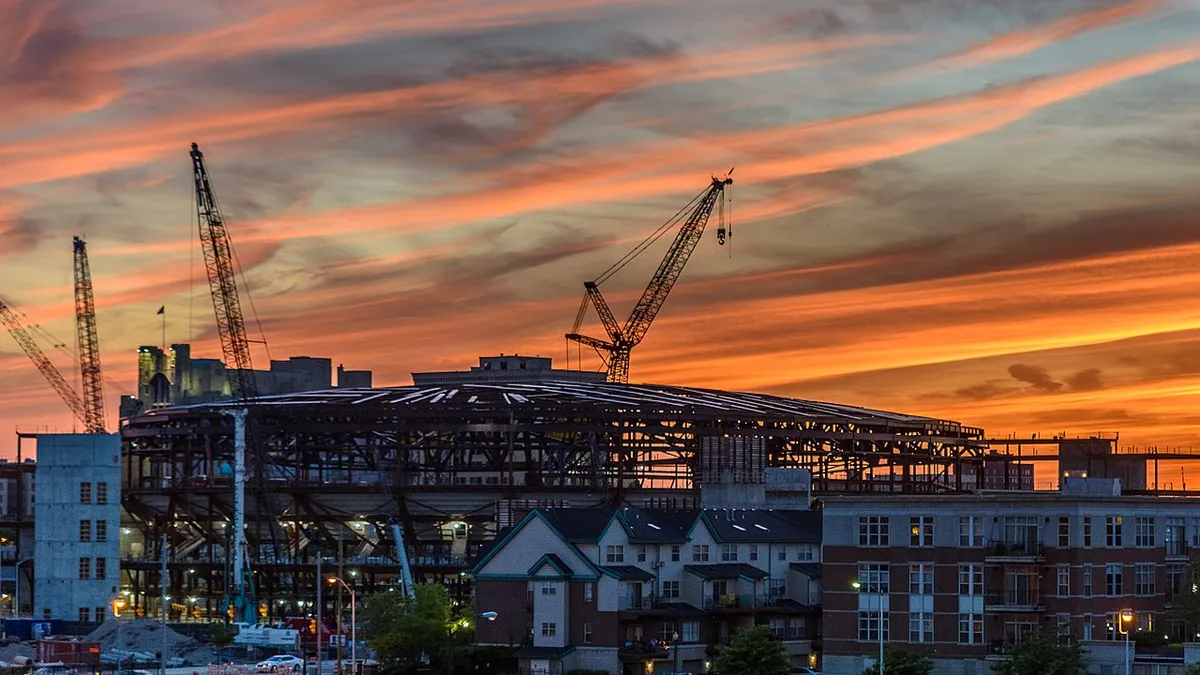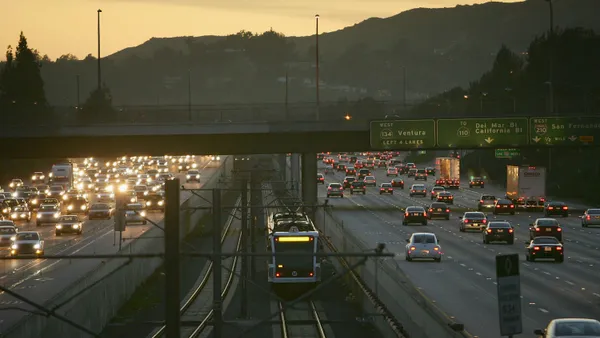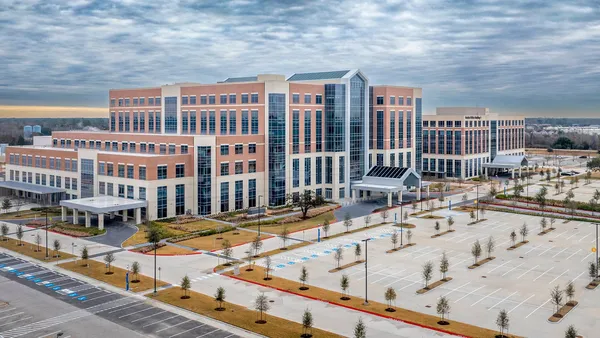Dive Brief:
- The Michigan Attorney General's Office is looking into a construction worker's death, according to the Detroit Free Press, after questions have arisen about whether he committed suicide while working on the Little Caesars Arena in Detroit or if his fatal fall was accidental.
- After 46-year-old electrician Michael Morrison plummeted seven stories to his death in June 2017, the Detroit Police Department, the Wayne County Medical Examiner and a Michigan OSHA (MIOSHA) inspector determined that his death was an accident. However, MIOSHA overruled its employee — allegedly destroying that inspector’s notes — and ruled the incident a suicide. The U.S. Department of Labor said it will also look into the case.
- Some critics of MIOSHA’s decision have accused the agency of trying to protect Morrison’s employer, Motor City Electric; Olympia Development, the developer of the arena and a subsidiary of Red Wings owner Ilitch Holdings; and companies involved with the project from the financial and other consequences of a workplace fatality. The general contractor was a joint venture between Barton Malow Co., Hunt Construction Group and White Construction.
Dive Insight:
An employee’s accidental death on the job, as well as any serious injury, can impact a contractor in several ways.
First, an injury can result in a higher experience modification rate, which is what insurance carriers use to determine how much contractors will pay for workers’ compensation premiums. The higher the rate, the higher the premium. The only way to bring that rate down is to reduce — or eliminate — the number of injuries in the future.
A serious injury or death can also draw the attention of federal OSHA or inspectors from an OSHA-approved state plan. Aside from potential violation citations and monetary penalties related to the accident, a serious incident could result in increased agency scrutiny on other jobsites that the offending company is working. This is particularly true if the accident involves lack of fall protection or one of OSHA’s other focus areas like unsafe trenching and excavation operations.
A construction company’s ability to provide future performance and payment bonds could also be affected by a jobsite death. One of the factors a surety looks at when deciding whether to guarantee a company’s performance on a project is its safety record. If the surety determines the contractor trying to secure a bond has been negligent, it might not to provide a bond, or provide one at an elevated price.
In addition, for companies that perform construction work for public agencies, which often require performance and payment bonds as a condition of awarding a contract, the inability to provide these instruments could put them out of business.













